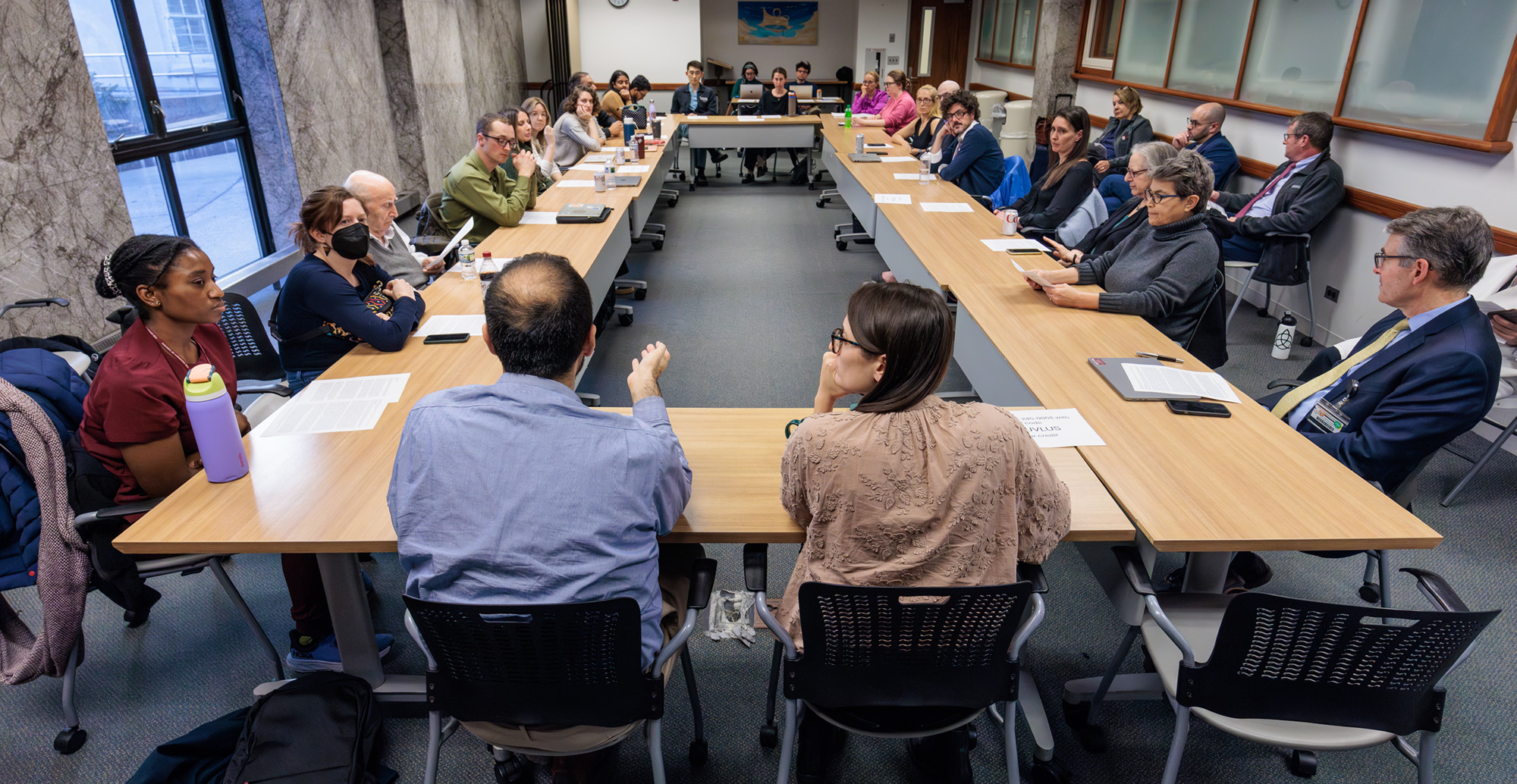
For 40 years UChicago’s MacLean Center for Clinical Medical Ethics has built a bridge between clinical practice and ethical inquiry.
Every Wednesday afternoon, in a quiet conference room off the bustling lobby of UChicago’s Goldblatt Pavilion, 30 time-pressed physicians, nurses, fellows, and faculty members from across the University gather to talk about ethics.
This week they review a case, already closed, involving a 44-year-old woman with advanced liver disease and severe bipolar disorder. (Details here have been changed to protect the patient’s privacy.) Critically ill and sometimes agitated, the patient spent weeks under sedation in a medical intensive care unit. An invasive and potentially risky procedure might have made it easier for her to breathe, but given the patient’s incapacity, someone else—either her anguished father or court-appointed guardian—would have had to approve it.
For a solid hour, UChicago Medicine staff familiar with the case field probing questions from their colleagues around the table. They delve into the medical facts and tougher issues too: Who should make decisions about treatment when a patient is too ill to do so? How should the process be handled when there are two potential surrogates—a family member and a legal guardian? Is it ethically permissible for the care team to withhold a medical procedure they believe will be only marginally helpful? What would the patient want?
“All the options basically suck,” laments one of the physicians.
Since the patient’s father had requested ethical guidance, another doctor suggests ways to begin the conversation. “We can say, ‘Listen, this is ethically, and morally, and medically a really complicated case. … And it’s really hard and sad, I would imagine, to see your daughter be so sick and so agitated.’”
A third colleague agrees. The next step should be to guide the surrogates toward a decision based on their knowledge of the patient’s values and wishes, asking, “What’s important to you, and her, and your family? Tell me about this person you love.”
Before they consider another case, the group learns how this story ended. Over several weeks, as the woman’s condition deteriorated, her father and her guardian conferred with the care team. Together they determined that it would be best for her to forgo the invasive procedure and transition to palliative care. She died in the hospital the day before the gathering around the conference table.
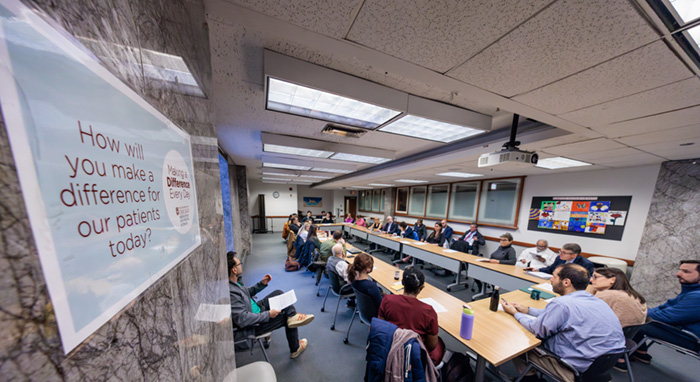
For nearly four decades, the MacLean Center for Clinical Medical Ethics has convened Wednesday case discussions on the UChicago campus. The goal is to provide regular opportunities for dialogue and continuing education for people from varied medical specialties and academic disciplines—philosophy, theology, law, and others—rather than to have them them resolve active cases. The latter task falls to the MacLean Center’s ethics consultation service, which offers real-time guidance on complex clinical cases emerging at UChicago Medicine.
The MacLean Center was created in 1983 with a transformative philanthropic gift from Dorothy J. MacLean and the MacLean family. The idea for the center grew from the doctor-patient relationship between Dorothy and her physician Mark Siegler, MD’67, the Lindy Bergman Distinguished Service Professor Emeritus of Medicine and a pioneer in the field of clinical medical ethics. Over time, Dorothy and Siegler developed a friendship rooted in shared intellectual curiosity and a lively exchange of ideas. Through their relationship, Dorothy became an advocate for clinical medical ethics, which she believed could improve the delivery of health care and the experiences of patients and their families. Today, with the continued support of Dorothy’s son and UChicago Medical Center Life Trustee Barry MacLean and the MacLean family, the center provides an intellectual home for more than 50 UChicago faculty and staff.
Siegler first got interested in clinical medical ethics in the 1970s. At the time his focus on everyday ethical problems emerging “at the bedside” was novel; so was his effort to root ethics in the clinical encounter between doctors and patients. While a moral philosopher approaching medical ethics might wrestle with abstract theoretical questions (What is illness? What is responsibility?), clinical ethics aims to offer case-based guidance on practical dilemmas.
To orient medical students and physicians, Siegler teamed up with two fellow bioethicists to author a 1982 textbook, Clinical Ethics: A Practical Approach to Ethical Decisions in Clinical Medicine (Macmillan). Slender enough to fit in a lab coat pocket, the little blue book filled a void. Now in its ninth edition, it has been translated into 11 languages.
Pressing topics in clinical ethics—such as reproductive cloning, stem-cell research, and artificial intelligence—have evolved with technology and the times. The field’s early physician-centric approach has expanded to recognize nurses, social workers, chaplains, psychologists, families, and others as essential partners in patient care. But fundamental principles such as shared decision-making, informed consent, and confidentiality have stayed at the core.
In 2022 Peter Angelos, an endocrine surgeon with a PhD in philosophy, succeeded Siegler as the MacLean Center’s director. Angelos first came to UChicago some 30 years ago as a surgical resident and fellow at the center. (He spent his fellowship year rewriting his philosophy dissertation after his committee at Boston University rejected the initial topic—euthanasia—as “too applied.”) As UChicago’s Linda Kohler Anderson Professor of Surgery and Surgical Ethics, Angelos has remained committed to applied clinical ethics. This past fall, at an event celebrating the MacLean Center’s 40th anniversary, he outlined a vision for where the field should go.
The COVID-19 pandemic exposed major challenges to the US health care system that need addressing, Angelos said, including racial health disparities and fair allocation of scarce resources. Meanwhile, he warned, “the increasing use of artificial intelligence in medicine pushes the boundaries of patient trust and physician responsibility to previously unimaginable levels.” Health threats from climate change are escalating locally and globally. For physicians and researchers, the implications are clear: “We now need to address ethics beyond the realm of issues arising at the bedside to those issues that impact society at large.”
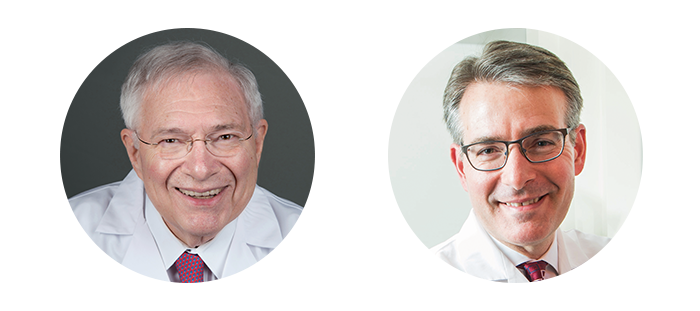
Health equity, a vast and challenging problem that cuts across nearly every area of clinical ethics, receives no mention in Siegler’s 1982 guide for physicians. Yet increasingly scholars and practitioners recognize that health care systems and broader social and economic forces influence health outcomes as much as the doctor-patient relationship does. The authors of Ending Unequal Treatment: Strategies to Achieve Equitable Health Care and Optimal Health for All, a 2024 National Academies report, define health equity as “a state in which everyone has a fair and just opportunity to attain their optimal health regardless of race, ethnicity, or other factors.” The report also notes that the United States has made little progress in improving health inequities over the past two decades.
Nationally, life expectancies for Black and Native Americans fall far below those of White Americans. People of color are more likely to die of COVID-19 and illnesses like heart disease and cancer. Both rural and inner-city Americans often lack access to primary care and hospital services. Monica Peek, SM’15, the Ellen H. Block Professor for Health Justice in the Department of Medicine and a coauthor of Ending Unequal Treatment, says, “I really, truly believe that health disparities are one of our country’s biggest moral shortcomings.”
Peek, an internist and clinician-investigator, joined the University faculty in 2006 and treats patients in Hyde Park. Concerned about the high rates of diabetes among patients on Chicago’s largely low-income, African American South Side, Peek joined forces with her mentor Marshall Chin and others to find solutions. Their decade-long collaboration showed that social drivers of health, like access to secure housing and healthy food, play a critical role in diabetes care and outcomes, and that diabetes education works best when it is culturally tailored and offered with community partners.
“A lot of this early work shaped what are now considered standards for doing multilevel interventions for racial disparities,” Peek says. What’s more, the project helped save the University’s health plan almost 10 percent of its total costs for all diabetes patients, since hospitalizations and emergency room visits declined among the group studied. With Chin, the Richard Parrillo Family Distinguished Service Professor of Healthcare Ethics in the Department of Medicine, Peek went on to lead a nationwide project to improve diabetes health outcomes. (The two are also associate directors of the MacLean Center, along with UChicago Medicine faculty members Megan Applewhite, AB’03, and Micah Prochaska, AB’04, SM’16.)
Efforts to eliminate health inequities must move beyond merely documenting differences between groups and instead uncover the reasons for—and root causes of—disparate health outcomes, Peek says. To that end, she has collaborated on health-related research involving communities of color around the country.
Chin has focused his recent research on the important role of payment policy and payers—including health plans, providers, and programs like Medicare and Medicaid—in advancing health equity. Compared to other high-income countries, the United States spends far more on health care as a percentage of gross domestic product but has the lowest life expectancies and highest rates of treatable and preventable deaths. Americans also face the greatest barriers to accessing and affording health services.
“That’s not just by chance,” Chin says. “The way we organize our system tends to reward short-term financial gain, as opposed to the health and well-being of patients and communities and medium- and long-term outcomes.” Invoking George Orwell’s Animal Farm, he concludes, “Some people are more equal than others.”

Some areas of medicine, like organ transplantation, have posed thorny ethical challenges since their inception. In 1989 a surgical team from UChicago Medicine made history when they performed the country’s first successful living-donor liver transplant. Prior to the transplant, MacLean Center ethicists spent two years working with transplant experts to review the ethical issues and develop protocols for practitioners to follow. The donating mother and her recipient daughter, then an infant, have thrived, but at the time the novel procedure raised questions about the risks and benefits of surgical innovation, informed consent, and the protection of living organ donors.
Then and now, the demand for transplant organs of all kinds has far exceeded supply. More than 100,000 people are currently on the national transplant waiting list, and each day 17 people die waiting for a transplant. Given the shortage, what is the best way to decide who should receive a lifesaving transplant? In general, factors of justice (considering the candidates’ circumstances and medical needs) are balanced against those of medical utility (trying to increase the overall number of transplants and the survival time of recipients and organs). The available organ also must match—in blood type, in size, and per other criteria—the patient in need.
Those are sound considerations, but researchers like William Parker, MD’12, SM’18, PhD’21, have found issues with the way allocation plays out in practice. A decade ago, when the assistant professor of medicine and public health sciences was a resident in the intensive care unit, he wondered why patients at the top of the wait-list for liver transplants were far sicker than their counterparts awaiting heart transplants.
The liver patients were “at death’s door,” Parker remembers, kept alive by ventilators and vasoactive blood-pressure medications. Meanwhile, patients in the cardiac intensive care unit “certainly had advanced heart failure and needed heart transplants, but they were conscious, comfortable, and receiving therapy support for their heart, like an intra-aortic balloon pump.”
Parker later learned that heart patients who received aggressive treatment had a better chance of receiving a transplant, since the therapies their cardiologists chose determined their priority status. By contrast, liver transplant candidates were prioritized based on medical urgency. “I realized that the heart transplant allocation system was not working the way it was intended, to capture and designate status 1A for the patients who are literally moments or hours away from death without a transplant,” he says.
Most clinical ethics research is team science, and Parker collaborated with others to develop the US-Candidate Risk Score, a new tool that incorporates clinical, lab, and blood-flow data to identify patients at the highest risk of death without a heart transplant. In 2024 the team was excited to publish proof of their model’s fairness and efficacy in the Journal of the American Medical Association, Parker says, “but the issue now is getting policymakers to put it into place, which is a different story.”
Other ethical dilemmas complicate organ transplants. The rising demand for organs has generated international “transplant tourism,” in which wealthy patients travel abroad to obtain a transplant more quickly, but organs may come from donors who act out of financial necessity or who did not give informed consent.
The pressure to obtain organs for transplant is even shaping the definition of death. In the United States organ donation can legally occur after brain death (the irreversible cessation of all functions of the entire brain, including the brain stem) or cardiac death (cessation of circulatory and respiratory function). But a controversial technique called normothermic regional perfusion has added new layers of complexity to organ donation.
Normothermic regional perfusion involves using a machine to recirculate blood to specific organs in the body after an organ donor’s heart has stopped beating, replenishing oxygen so organs can be utilized. The medical team clamps blood vessels to the brain to prevent any return of brain activity. Cardiac criteria are used to determine death, but the procedure essentially restarts the heart. And if you can restart the heart, some ask, is the donor really dead?
Critics believe the procedure is unethical because it violates existing norms governing the declaration of death and the physician’s vow to “do no harm.” But supporters argue that as long as patients and/or their surrogates understand what’s happening and have consented to organ donation, the procedure should be allowed. This past November, at the 36th annual MacLean Conference on Clinical Medical Ethics, a well-attended session on normothermic regional perfusion offered practical ideas for resolving the conflict—a sign that, together, physicians and ethicists will find a bridge across the impasse.
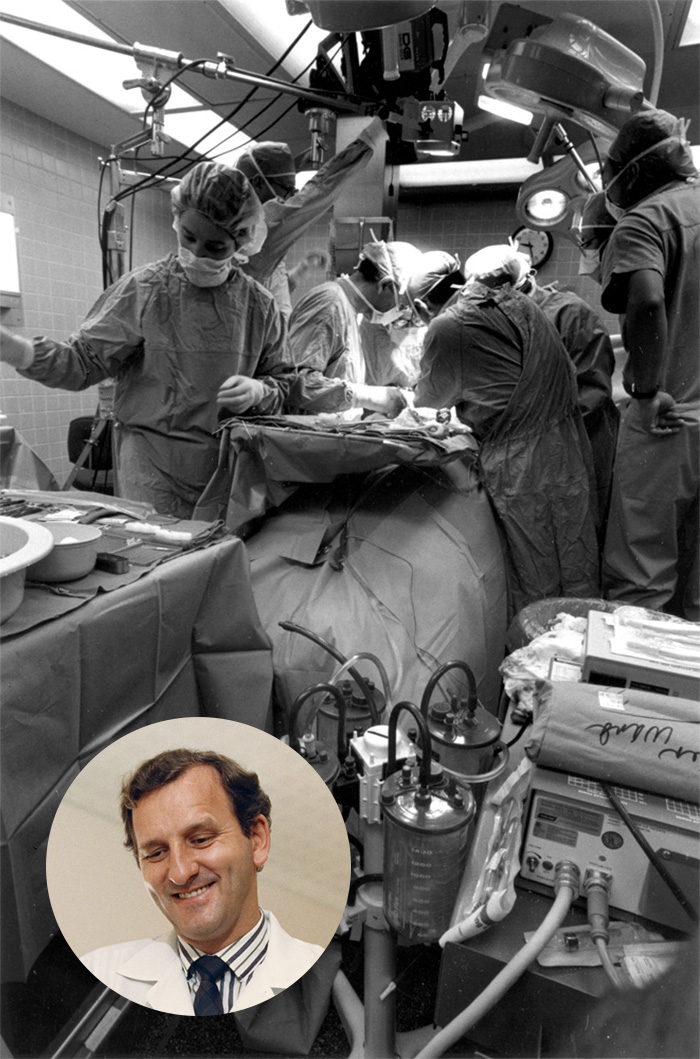
When clinicians face ethical quandaries, it can help to have knowledge—and allies—from fields other than medicine. Dan Brudney, the Florin Harrison Pugh Professor of Philosophy, has crossed Ellis Avenue regularly over the past 20 years to join the MacLean Center’s Wednesday case conferences. Early on he taught moral philosophy to annual cohorts of ethics fellows. “From the get-go I’ve been immensely impressed with the clinicians,” he says, “with their humaneness as well as their technical knowledge and skill.”
Brudney has seen how concepts from philosophy can provide a way forward in messy and painful situations related to end-of-life care, especially when patients can’t make decisions for themselves or haven’t left an advance directive for care. For instance, should a wife authorize life-prolonging treatment for her beloved husband who is incapacitated by terminal cancer if the intervention gives his children precious time to say goodbye? As a surrogate decision-maker, she has a responsibility to act based on his will or preference—if he previously expressed it—or, if he never stated a preference, to act on what she believes to be his firmly held values.
Both of these moral considerations—the exercising of the patient’s will and staying faithful to the patient’s values—are important and relevant at the bedside, Brudney says. The clinician’s role is to help the surrogate reach a decision with sufficient confidence while making sure that the surrogate’s emotional burden “is not added to by the worry about whether they did the right thing.”
When a patient or family questions a course of treatment for religious reasons, a theologian’s perspective may be valuable. Laurie Zoloth, the Margaret E. Burton Professor of Religion and Ethics in the Divinity School, brings her knowledge of Judaism and other faiths to interdisciplinary discussions with MacLean Center colleagues. She also draws on her own experience in medicine—in her 20s she worked as a neonatal intensive care nurse to help pay for her graduate studies in religion and ethics.
Conflicts between religious and medical practices sometimes surface in hospital settings. A classic example is the Jehovah’s Witness who refuses a blood transfusion because they believe it will exclude them from eternal life. When treating such patients, doctors and nurses must proceed respectfully and consider alternatives like bloodless surgery. “Negotiating all the different pieces of this discussion and dilemma is an important skill for our fellows to learn,” Zoloth says.
Zoloth’s scholarship often goes beyond the bedside boundaries of clinical ethics. One of her recent books mines the texts and traditions of Jewish thought to make the moral case for fighting climate change, which she calls “the most pressing ethical issue of our time.” The evolving climate crisis will have enormous health consequences for everyone, Zoloth believes. “We’re all in a phase 1 trial on what happens to humans when the climate heats up—an unconsented trial.”
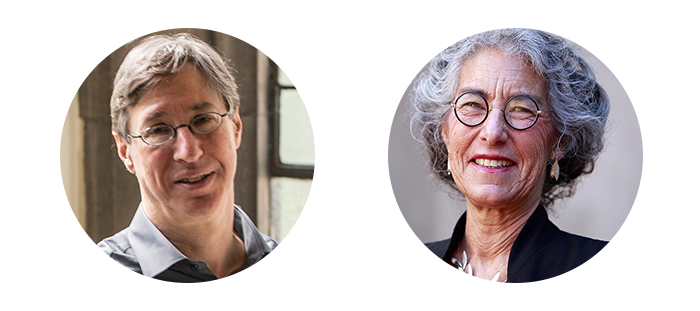
Two other areas engaging MacLean Center ethicists—artificial intelligence (AI) and abortion care—have grown in visibility and complexity. Health care providers are increasingly using AI to interpret medical scans, diagnose disease, and determine treatment. Heather Whitney, a past ethics fellow and current assistant professor of radiology, is partnering with colleagues to study the ethics of off-label use of medical imaging AI and to develop a “sureness metric” for physicians using AI tools to diagnose cancer on medical images. Other faculty are looking for ways to ensure fairness in health care algorithms, since the decisions and rules that algorithms generate can reflect biases in the data sets used to create them, with potentially negative consequences for patients from marginalized groups.
Meanwhile, in the wake of the US Supreme Court’s 2022 decision overturning Roe v. Wade, Julie Chor, MD’04, has studied the experiences and priorities of out-of-state patients who seek abortions in Illinois, a “surge state” where the procedure remains legal. Chor, an associate professor of obstetrics and gynecology, also has called attention to the moral distress of clinicians in states with abortion restrictions, “when faced with circumstances where they know what the best thing to do is medically, but they’re prohibited by law from doing it.”
Chor came to clinical ethics as a first-year Pritzker School of Medicine student in Siegler’s course on the doctor-patient relationship. A decade after she graduated, she did a MacLean Center fellowship and describes the training as “transformative.” She believes that health care professionals should be advocates for patients and their well-being and champions of research grounded in evidence-based best practices. As this work unfolds, the center’s activities, including Wednesday case conferences, offer a community of support and interdisciplinary learning.
Today Chor codirects the same introductory ethics course that opened her eyes as a medical student, regularly updating the syllabus with new questions and readings. “I stand in the front of the lecture hall, looking out at seats that I sat in almost 25 years ago,” she says. The discussion topics—such as health disparities and LGBTQ health—have changed, but having a role in educating a new generation of ethicists “feels profound.”
Elizabeth Station is a writer in Evanston, Illinois.
